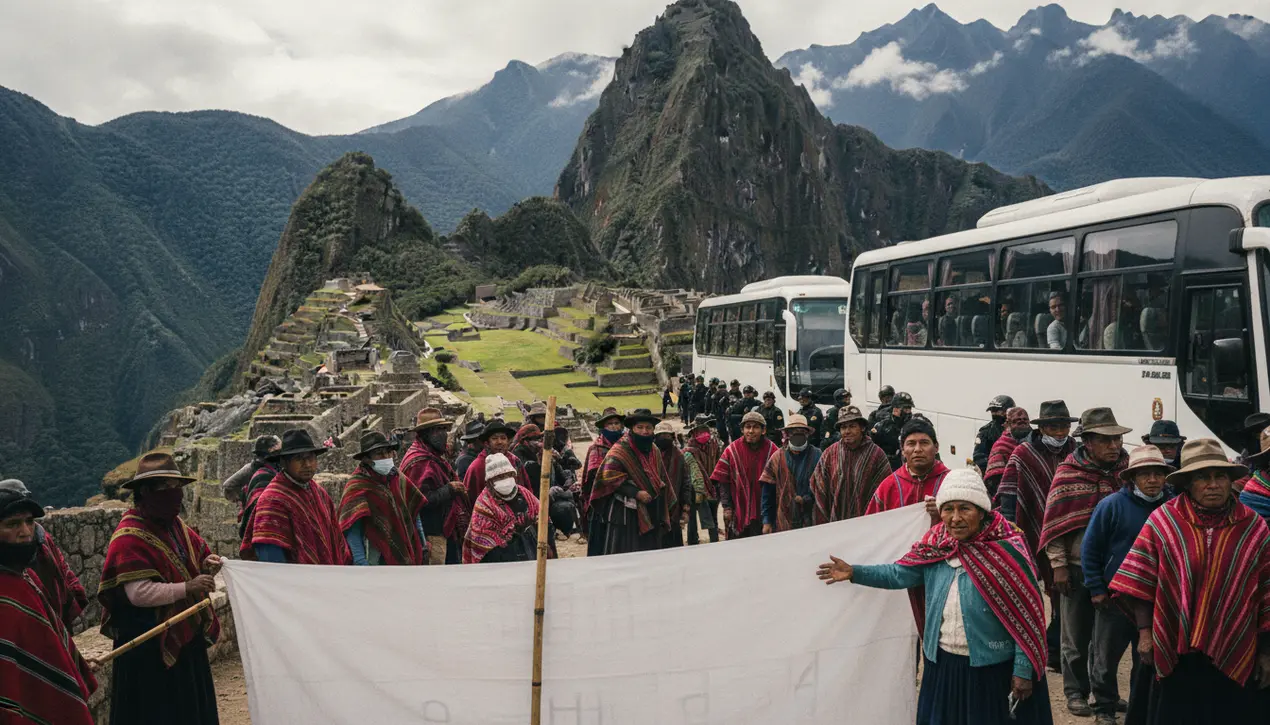- News
- travel-tourism
- Machu Picchu at a Crossroads: Tourist Bus Protests Ignite Clash Over Tourism's Future

Othertravel & tourismDestinations and Guides
Machu Picchu at a Crossroads: Tourist Bus Protests Ignite Clash Over Tourism's Future
EM
Emma Wilson
1 day ago7 min read4 comments
The iconic terraces of Machu Picchu, a UNESCO World Heritage site, have become the stage for a fierce confrontation as protests by local communities halt tourist bus services, laying bare the deepening conflict between global tourism demands and local economic survival. This dispute transcends transportation logistics, representing a critical battle over economic equity, cultural preservation, and local agency at one of the world's most revered archaeological sites.The protests, led by guides, artisans, and small business owners, target the coach system that transports thousands of daily visitors to the mountaintop citadel. Demonstrators decry an inequitable model where profits are perceived to flow to large corporations and government entities, while local residents grapple with the inflation, congestion, and cultural dilution brought by mass tourism.Many express that the spiritual essence of the sacred site is being compromised by its treatment as a mere revenue stream. In defense of the centralized bus system, government and tourism officials cite its role in managing the immense logistical and environmental pressures of over 5,000 daily visitors during peak seasons.They argue it is an essential tool for preserving the fragile Incan pathways from irreversible degradation, a concern repeatedly flagged by UNESCO. The standoff forces a difficult question: should Machu Picchu be curated primarily as a protected global heritage museum, or should it foremost serve as an economic engine for the surrounding communities with a direct stake in its legacy? Peru's unstable political climate adds fuel to the fire, where such local grievances can rapidly escalate into wider anti-government sentiment.The immediate fallout is palpable—stranded tourists, trip cancellations, and damage to Peru's reputation as a premier travel destination. A lasting solution will necessitate moving beyond temporary fixes to pioneer a new paradigm for sustainable tourism.This could include enforceable community profit-sharing agreements, support for local-led tourism enterprises, and the serious consideration of a strict visitor cap, a strategy proven effective in other sensitive locations like Bhutan. The future of Machu Picchu now hinges on a fragile negotiation that will determine whether this wonder of the world can balance preservation with the prosperity of its people.
#Machu Picchu
#Peru
#tourism
#protests
#buses
#heritage site
#featured
Stay Informed. Act Smarter.
Get weekly highlights, major headlines, and expert insights — then put your knowledge to work in our live prediction markets.
Comments
Loading comments...
© 2025 Outpoll Service LTD. All rights reserved.